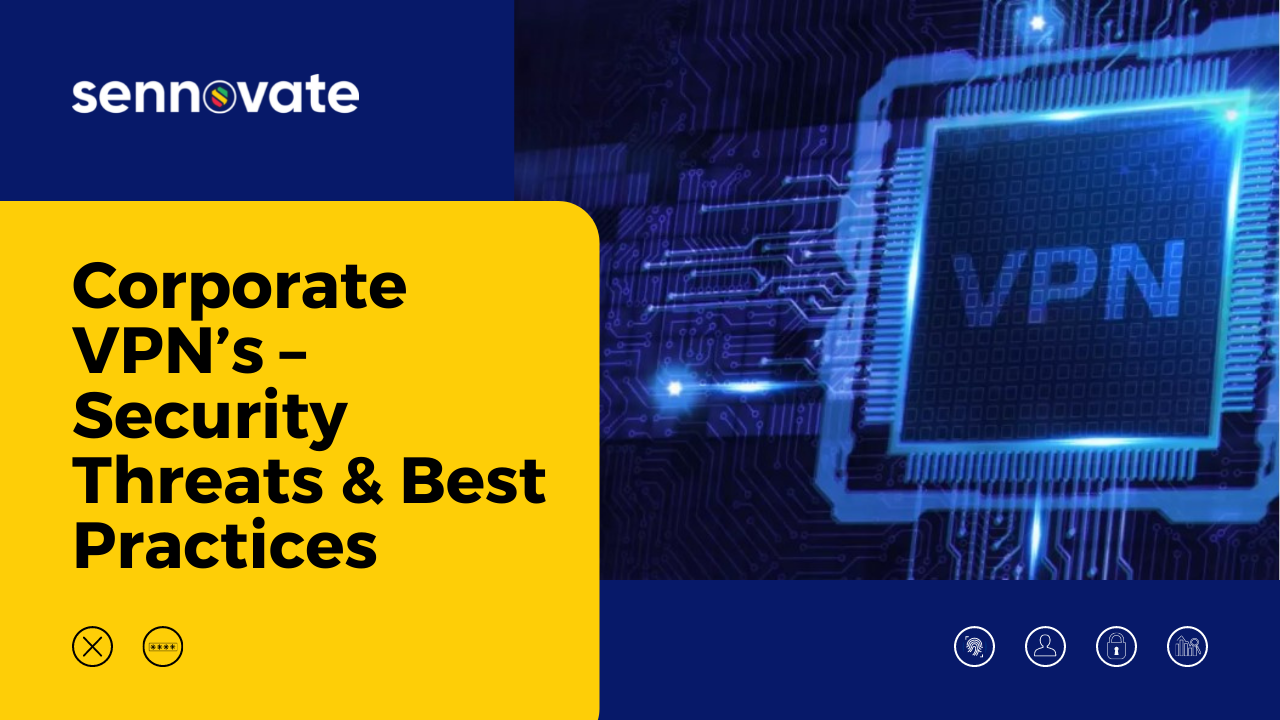
Corporate VPN’s – Security Threats & Best Practices
Virtual Private Networks-(VPN’s) are generally meant to provide a safe ‘tunnel’- i.e., nothing but an encrypted connection, through which your web session can travel so as to protect your privacy and security from nosy hackers or prying eyes. More specifically, corporate VPN’s are intended to provide secure access to companies’ resources such as databases, Software to remote users. VPN’s have greatly enhanced organizations’ efficiency and also helped in providing their services Geo-independent. VPNs have become a need-of-hour amidst remote work policies being adopted by organizations worldwide.
However, along with benefits, there are some threats that come along with VPN’s.
Major Threats/concerns with Corporate VPN’s
1.Logging Policies
While deciding between VPN’s, this is one of the most important parameters to be considered. Most of the cheap or free VPN providers store your data as log records that can be traded. But this ultimately violates the main purpose of “privacy”. By zero-log policy, providers usually mean that they store no data about your sessions or store very minimal data for business. Considering the importance of privacy and security, organizations must always look for VPN solutions that provide a “zero-log” policy.
2.Malicious software infection
VPN’s are mainly focused to provide you with secure web sessions and web privacy. Most VPN’s do not guarantee if your system gets infected with malware. To protect from such threats, organizations must look for a VPN that provides a complete package or they may look for separate solutions to deal with these threats.
3.Pressure from Jurisdiction
Most countries need data retention of every business or citizen. In such scenarios even if your vendor promises ‘zero-logs policy, it is forced by the government of the country to store the data secretly. Thus, your privacy is compromised in some way or the other.
4.Hijack of Domain Name System (DNS)
Remote users often use public WiFi to connect to resources. Most of the VPN’s can’t prevent DNS hijacking, so the hackers are often successful in directing the users to malicious websites by providing the fake IP address of the websites through compromised DNS servers. DNS hijacking is accomplished through malicious software which gets installed and changes the DNS settings of routers which in turn uses the DNS servers which are maintained by malicious users(hackers) and direct the IP requests to misleading sites.
Best practices to mitigate VPN threats
Multi-factor Authentication (MFA)
Use of Multifactor Authentication is the foremost desirable feature in corporate VPN’s. Passwords are easy to guess by hackers. Multifactor Authentication uses more than one factor to ensure your identity. Here multiple factors include One-Time-Passwords (OTP’s) sent to personal devices, bio-metric features such as fingerprint, etc. to ensure that only authentic users are accessing the resources. The implementation of MFA based VPN can incredibly mitigate malicious access threats.
Use of Privileged Access Management(PAM) solutions
It is often the case when business needs to co-operate with third-party vendors and they are needed to be provided with access to organization’s resources. Hackers can misuse their access to carry out their intended tasks. Thus, it is advisable to implement PAM solutions that provide the organization with complete control and enables them to monitor the activities.
Implement more strict Geo-location features:
Implementing stricter Geo-location rules reduces the risk of hackers that can be situated in remote areas. By these methods access to resources can be prohibited when the request is from a region outside a defined region.
In conclusion, one size does not fit all hence Sennovate pays keen attention to their customer’s infrastructure and provides customized service. Sennovate delivers custom identity and access management solutions to businesses around the globe. Sennovate ensures to provide a seamless experience with integration across all cloud applications, and a single price for product, implementation, and support. Have questions? The consultation is always free. Email [email protected] or call us at: (925) 918-6618
